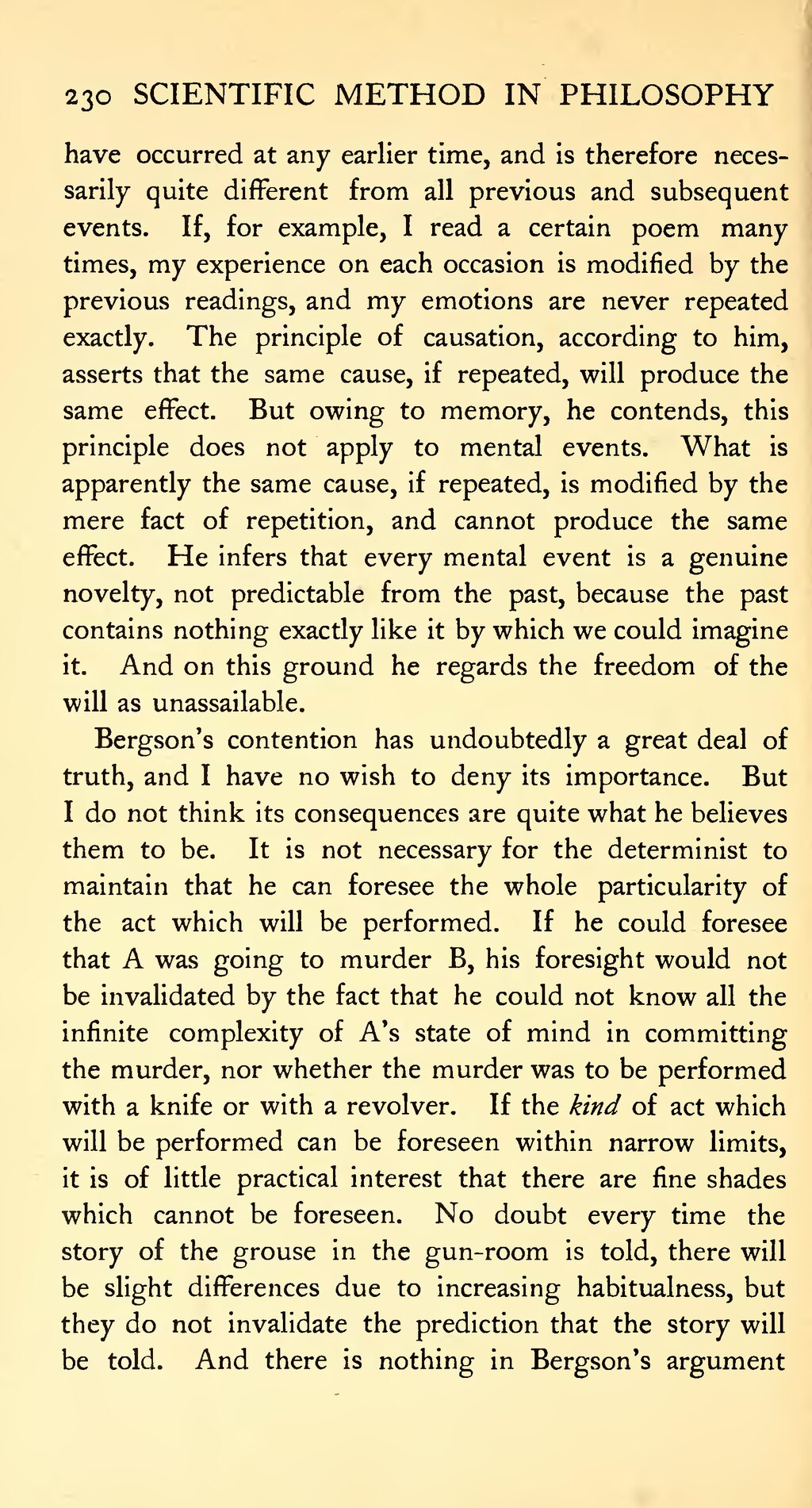have occurred at any earlier time, and is therefore necessarily quite different from all previous and subsequent events. If, for example, I read a certain poem many times, my experience on each occasion is modified by the previous readings, and my emotions are never repeated exactly. The principle of causation, according to him, asserts that the same cause, if repeated, will produce the same effect. But owing to memory, he contends, this principle does not apply to mental events. What is apparently the same cause, if repeated, is modified by the mere fact of repetition, and cannot produce the same effect. He infers that every mental event is a genuine novelty, not predictable from the past, because the past contains nothing exactly like it by which we could imagine it. And on this ground he regards the freedom of the will as unassailable.
Bergson’s contention has undoubtedly a great deal of truth, and I have no wish to deny its importance. But I do not think its consequences are quite what he believes them to be. It is not necessary for the determinist to maintain that he can foresee the whole particularity of the act which will be performed. If he could foresee that A was going to murder B, his foresight would not be invalidated by the fact that he could not know all the infinite complexity of A’s state of mind in committing the murder, nor whether the murder was to be performed with a knife or with a revolver. If the kind of act which will be performed can be foreseen within narrow limits, it is of little practical interest that there are fine shades which cannot be foreseen. No doubt every time the story of the grouse in the gun-room is told, there will be slight differences due to increasing habitualness, but they do not invalidate the prediction that the story will be told. And there is nothing in Bergson’s argument

